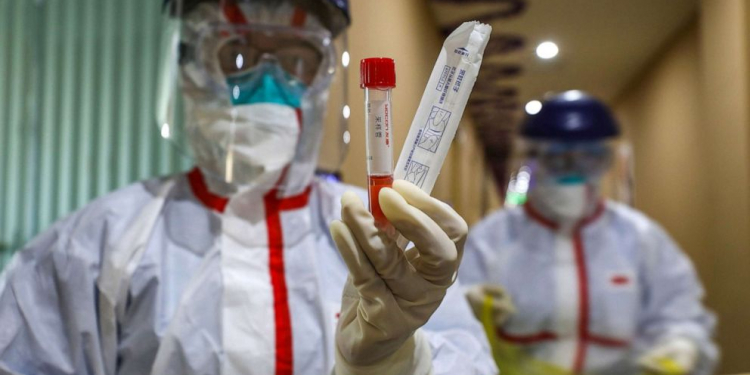The FINANCIAL — A CDC-developed laboratory test kit to detect 2019 novel coronavirus (2019-nCoV) began shipping yesterday to select qualified U.S. and international laboratories. Distribution of the tests will help improve the global capacity to detect and respond to the 2019 novel coronavirus.
The test kit, called the Centers for Disease Control and Prevention (CDC) 2019-Novel Coronavirus (2019-nCov) Real-Time Reverse Transcriptase (RT)-PCR Diagnostic Panel (CDC 2019-nCoV Real Time RT-PCR), is designed for use with an existing RT-PCR testing instrument that is commonly used to test for seasonal influenza.
The CDC 2019 novel coronavirus test is intended for use with upper and lower respiratory specimens collected from people who meet CDC criteria for 2019-nCoV testing. The test uses a technology that can provide results in four hours from initial sample processing to result.
“Our goal is early detection of new cases and to prevent further spread of the coronavirus,” said CDC Director Robert R. Redfield, M.D. “Distribution of these diagnostic tests to state laboratories, U.S. government partners and more broadly to the global public health community will accelerate efforts to confront this evolving global public health challenge.”
The test kit has not been FDA cleared or approved, however distribution and use of the test kits follows the U.S. Food and Drug Administration (FDA) February 4, 2020, issuance of an Emergency Use Authorizationexternal icon (EUA). The tests are being shipped through the International Reagent Resource (IRR)external icon, a CDC-established mechanism that distributes laboratory reagents domestically and globally.
Initially, about 200 test kits will be distributed to U.S. domestic laboratories and a similar amount will be distributed to select international laboratories. Each test kit can test approximately 700 to 800 patient specimens. Additional test kits will be produced and made available for ordering in the future from the IRR. At this time, each laboratory that places an order will receive one 2019-nCoV test kit.
The IRR is accepting orders for 2019-nCoV tests from qualified laboratories. This includes 115 qualified U.S. laboratories, such as state and local public health laboratories and Department of Defense (DoD) laboratories, as well as 191 qualified international laboratories, such as the World Health Organization (WHO) Global Influenza Surveillance Response System (GISRS) laboratories.
To fight further spread of the new coronavirus (2019-nCoV) outbreak in China and globally, and protect states with weaker health systems, the international community has launched a US$675 million preparedness and response plan covering the months of February through to April 2020.
The objectives of the plan are to limit human-to-human transmission of the virus, particularly in countries most vulnerable if they were to face an outbreak; identify, isolate and care for patients early; communicate critical risk and event information; minimize social and economic impact; reduce virus spread from animal sources; and address crucial unknowns.
As noted in the SPRP, WHO assesses that the outbreak poses a very high risk in China, and high risk regionally and globally. The risk assessment was based on factors including the likelihood of further spread, the potential impact on human health, and the varying levels of effectiveness in national preparedness and response measures. Accelerated action, as called for in the plan, can address these risks and areas requiring support.
As of 10 a.m. Central European Time on 5 February, 25 countries have reported confirmed cases of the new coronavirus, including China, where 24,363 people had contracted the virus, or over 99% of all cases. In all other countries, 191 cases have contracted the virus.
China Seeks Patent for Gilead’s Experimental Drug (1:01 p.m. HK)
China has applied for a new patent on an experimental Gilead Sciences Inc. drug that its scientists believe might fight the coronavirus.
It has applied for a patent for the use of the drug, know as remdesivir, to treat the novel coronavirus. The move is a sign that China views Gilead’s therapy as one of the most promising candidates to fight the outbreak. A patent battle may affect Gilead’s control over the drug in China.
While Gilead’s experimental drug isn’t licensed or approved anywhere in the world, it is being rushed into human trials in China on coronavirus patients after showing early signs of being highly effective, Bloomberg reported.






























Discussion about this post